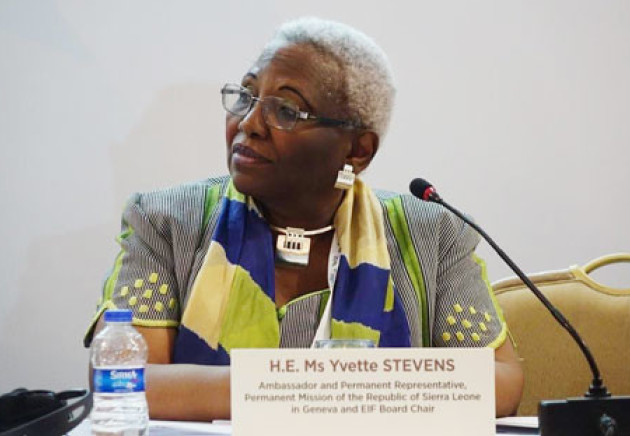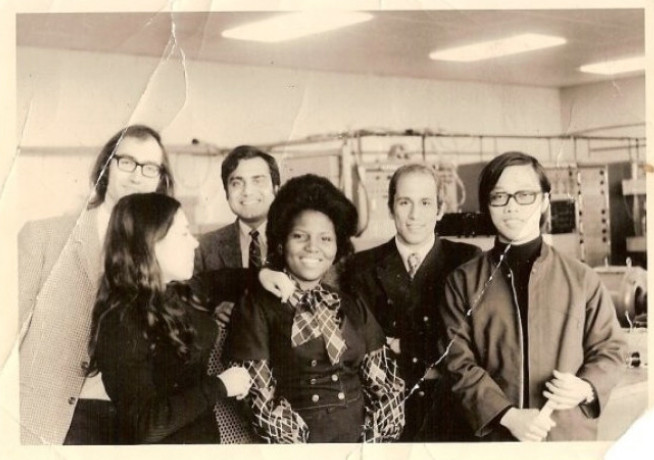Great expectations
Ambassador Yvette Stevens (MSc Electrical Engineering 1973) has forged a career out of making her actions count.
Interview: Sarah Woodward
 As a six-year old child in Sierra Leone, I listened to BBC outside broadcasts with my uncle and found them fascinating. It was like a story book. I never imagined that one day I would be part of the story of helping people around the world.
As a six-year old child in Sierra Leone, I listened to BBC outside broadcasts with my uncle and found them fascinating. It was like a story book. I never imagined that one day I would be part of the story of helping people around the world.
Many years later, in my adult life, I was working as an engineer in Sierra Leone when the opportunity to get into humanitarian work came to me quite by chance. One day a man from the International Labour Organisation (ILO) came from Geneva on a recruitment mission. He was planning a project for which he needed an economist, a sociologist and an engineer from Africa. He had ruled out the idea of an African female engineer – and then he met me!
I initially dismissed his offer as I had left London to come back home to care for my five children. But, most surprisingly, he agreed that my mother should come with me to Geneva as primary dependent, to look after them. Only much later, when I told colleagues this story, did I realise how unusual that was at the time.

In my very first year working for the ILO something happened that has stayed with me throughout my working life. Working as a UN Technology Expert, I went on a mission to Fallu in the north of Sierra Leone. We were greeted with great ceremony and I joined in with the women in their traditional devil dance as we made our way to the mud-walled, thatched community centre where the village chief was waiting to greet us. On our arrival he expressed disappointment that the expert had been unable to attend.
The local official explained that the expert was me, a Black woman from Sierra Leone. The village chief had expected a white male, but, to his credit, he covered his astonishment and turned the situation to the advantage of the village, using me as proof that educating girls was worthwhile. I was later told that the next morning there was a long queue of parents at the village school ready to enrol their daughters.
But it was what the chief said to me at the end that has remained one of my guiding principles. “You have come to us as yet another UN expert. You have raised our expectations. You are one of us and if we never see you again bringing help, as is the case with all the others, then we leave it to your conscience.”
The chief’s words struck me then like a bolt of lightning in a tropical storm and have guided my actions throughout the more than 30 years I spent working with the UN. It was a defining moment in my career. When I returned to Geneva to update my boss on the mission, he told me the outcome of our work would be a report. But I insisted I would personally return to the village to make sure they got the equipment they need, and he eventually agreed.
The chief’s words struck me like lightning in a tropical storm and guided my actions ever since
Coming from a disadvantaged part of the world myself, and with the privilege of an education at Imperial, I was in a position to help others, and I did everything possible to make my actions count. It is not enough to tell people what to do. You have to show that you have done it yourself. Though, now that I am writing my memoirs, I wonder how I did it while raising five children – one of whom achieved a doctorate degree in Engineering. I hope that the village chief would be pleased with me!